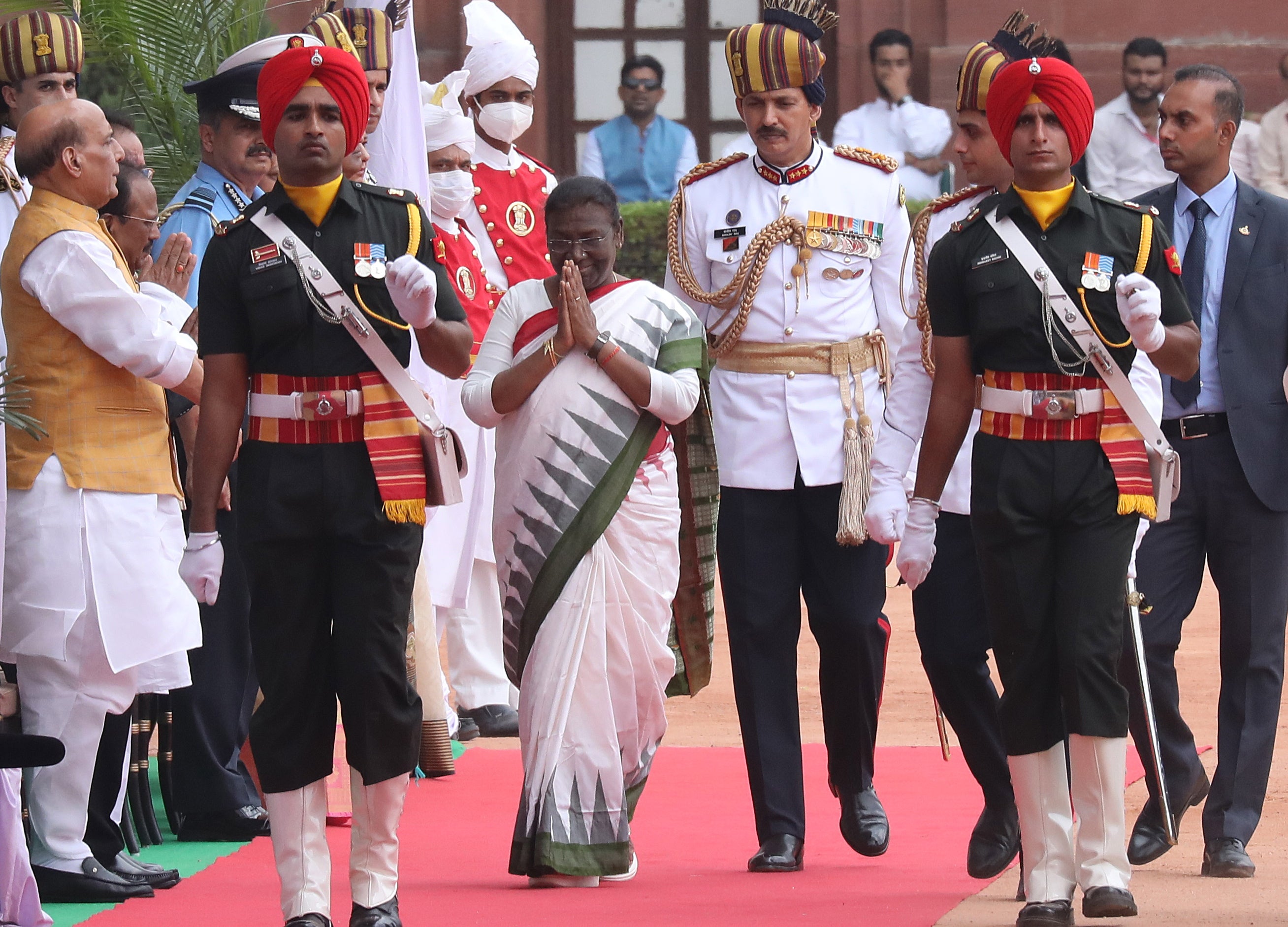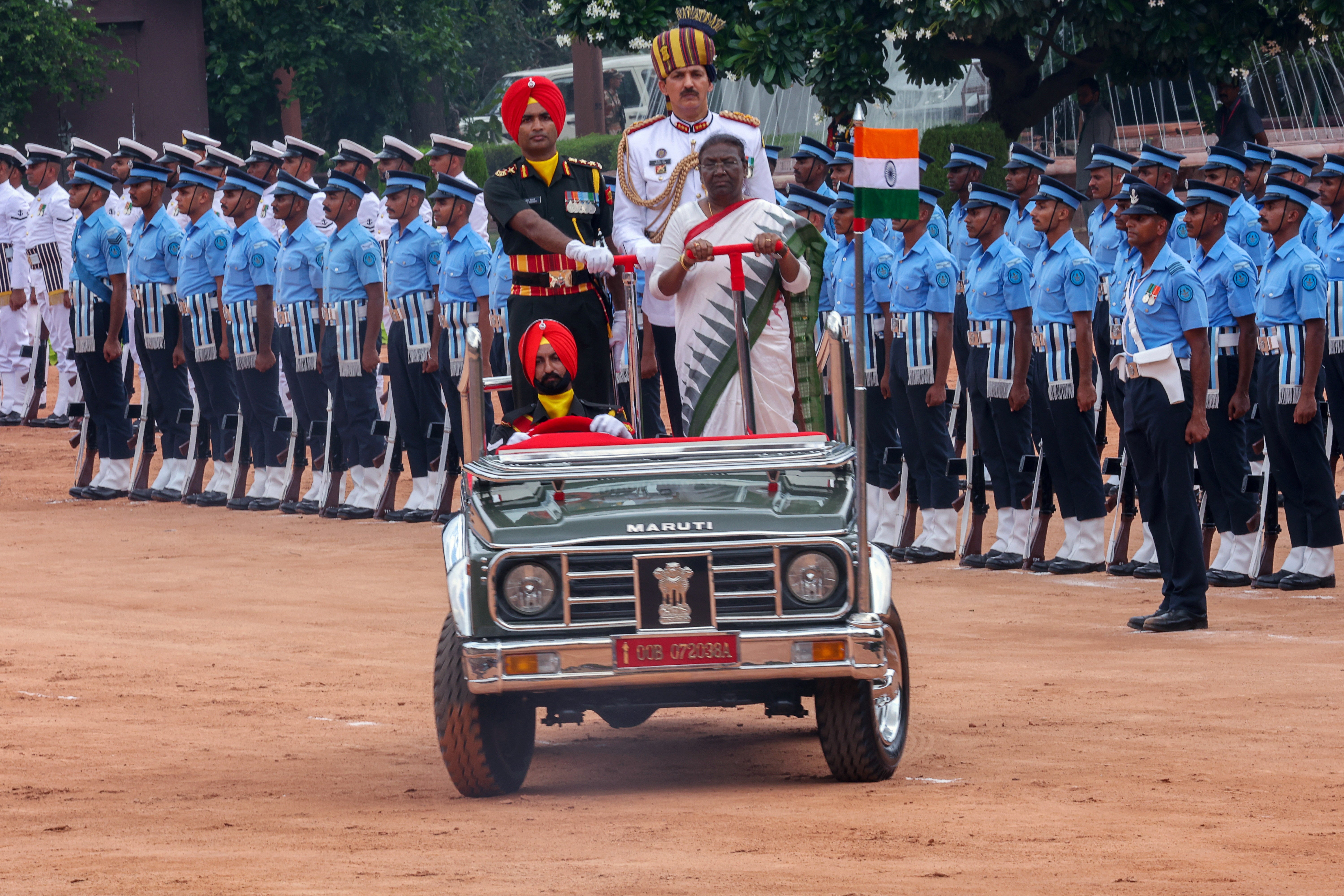India’s first tribal president takes oath: ‘Poor can have dreams and fulfil them too’
‘My election is proof that the poor in India can not just dream but also fulfil those dreams’
Your support helps us to tell the story
From reproductive rights to climate change to Big Tech, The Independent is on the ground when the story is developing. Whether it's investigating the financials of Elon Musk's pro-Trump PAC or producing our latest documentary, 'The A Word', which shines a light on the American women fighting for reproductive rights, we know how important it is to parse out the facts from the messaging.
At such a critical moment in US history, we need reporters on the ground. Your donation allows us to keep sending journalists to speak to both sides of the story.
The Independent is trusted by Americans across the entire political spectrum. And unlike many other quality news outlets, we choose not to lock Americans out of our reporting and analysis with paywalls. We believe quality journalism should be available to everyone, paid for by those who can afford it.
Your support makes all the difference.Droupadi Murmu, who took oath on Monday as India’s first president from a marginalised tribal community, said her victory is an example that the poor can also fulfil their dreams.
The 64-year-old former teacher from the eastern Indian state of Odisha won the presidential election with a big margin on Thursday and was sworn in in an elaborate ceremony attended by prime minister Narendra Modi and several other top leaders.
“Reaching the Presidential post is not my personal achievement, it is the achievement of every poor [person] in India,” Ms Murmu, wearing traditional attire, said in her speech.
“My election is proof that the poor in India can not just dream but also fulfil those dreams.”
“It is a matter of great satisfaction for me that those who have been deprived for centuries and those who have been denied the benefits of development, those poor, downtrodden, backwards and tribals are seeing their reflection in me,” she added.
Ms Murmu comes from the Santhal community, the country’s largest tribal group.
In voting by members of both the houses of parliament and of the legislative assemblies of all the states, Ms Murmu won by securing 64 per cent votes against her opponent Yashwant Sinha’s 36 per cent.

Her elevation to India’s highest constitutional post has been perceived as an important and historic gesture of goodwill by Mr Modi’s ruling right-wing Hindu nationalist Bharatiya Janata Party that nominated her for the post.
Her appointment marks a significant step for the representation of India’s tribal communities that make up more than 8 per cent of its 1.4 billion people.
Ms Murmu, who as a girl did not have sufficient money for her education, also invoked her background in her powerful speech.
“It is the power of our democracy that a daughter born in a poor house, a daughter born in a remote tribal area, can reach the highest constitutional post of India,” she said.
“My election has the blessings of the poor of the country and reflects the dreams and capabilities of crores of women and daughters of the country.”
She promised she would hold the interests of the youth and women paramount in her five-year tenure.

Mr Modi hailed Ms Murmu’s swearing-in as a “watershed moment for India, especially for the poor, marginalised and downtrodden”.
Though a ceremonial role, the president acts as the Supreme Commander of the Armed Forces.
The president also plays an important role during political crises, such as when a general election is inconclusive, by deciding which party is in the best position to form a government.
On the conclusion of the ceremony in the hall of the parliament, Ms Murmu left for the Presidential palace where she was greeted with an inter-services guard of honour and a 21-gun salute.
Ms Murmu has been congratulated by world leaders, including China’s president Xi Jinping.
He said China and India are important neighbours to each other and “a healthy and stable China-India relationship serves the fundamental interests of the two countries and peoples, and is also conducive to regional and world peace, stability and development”.
Russian president Vladimir Putin also extended his wishes.
“We attach much importance to the relations of a special privileged strategic partnership with India,” Mr Putin said in the message on Saturday.
“I hope your activities as the head of state will promote the further development of the Russian-Indian political dialogue and productive cooperation in different areas for the benefit of our friendly nations and in the interests of stronger international stability and security.”
Sri Lanka’s new president Ranil Wickremesinghe, Nepal prime minister Sher Bahadur Deuba and Maldivian president Ibrahim Mohamed Solih also congratulated Ms Murmu.
Join our commenting forum
Join thought-provoking conversations, follow other Independent readers and see their replies
Comments